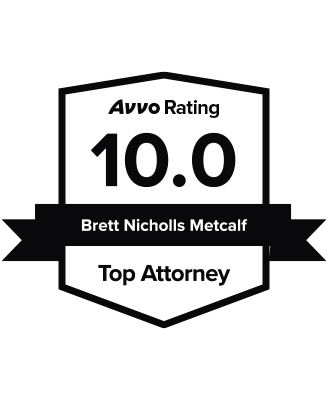Arson is one of the original felonies punished under American law. It originated in English common law and remains a crime in every state.
An arson conviction could result in decades of imprisonment even if no one was harmed. An arson defense lawyer from Metcalf Falls, Criminal Defense Attorneys, P.A. can explain your story to prosecutors and jurors to defend you from these serious charges.
Florida Arson Laws
Arson covers the destruction of a dwelling or structure by fire or explosion. Specifically, the Florida statutes define arson as willfully and unlawfully damaging by fire or explosion:
- Dwellings and their contents
- Structures where people are normally present and their contents
- Other structures you knew or had reasonable grounds to believe were occupied, and their contents
The Florida arson statute expands on common law arson to include other types of structures, including:
- Buildings of any kind
- Enclosed areas with a roof
- Real property and appurtenances
- Tents and portable buildings
- Vehicles
- Vessels
- Watercraft
- Aircraft
Other Types of Arson Charges
Arson also includes a second offense in which the prosecution does not need to prove you willfully damaged any of those types of property. Instead, the prosecution only needs to prove a dwelling or structure was damaged by fire during the commission of a felony.
The arson statute does not limit the kinds of felonies that can support a charge of second-degree felony arson. Thus, it can include:
- Violent crimes, like homicide, robbery, or rape
- Property crimes, like burglary or vehicle theft
- Other felonies, like DUI manslaughter or drug trafficking
Finally, if anyone gets injured due to arson or felony arson, prosecutors can bring a related charge of arson resulting in injury to another. This charge happens when any person, including a firefighter, suffers an injury due to arson, even if the injury was not the intent of the arson.
Statute of Limitations for Arson in Florida
Under Florida’s statute of limitations, prosecutors must commence prosecution within a fixed period after a crime. The time limit changes depending on the classification of the offense. In the case of arson, prosecutors have the following deadlines:
- Four years for arson
- Three years for arson during the commission of a felony and arson resulting in great bodily harm
- Two years for arson resulting in bodily harm
Prosecutors usually meet this deadline by filing an indictment or charging documents with a court. In other words, an arrest is not enough to meet the deadline.
What Are the Penalties for Tampa Arson Charges?
The penalties for arson under Florida law range widely depending on the type of arson. Since the type depends on what was burned and what resulted from it, the statute is intended to punish more serious cases of arson more harshly.
It’s worth noting that arson is one of the Florida crimes that you cannot seek expungement after pleading guilty or no contest.
The penalties for the various types of arson include:
First-Degree Felony Arson
Arson involving the willful and unlawful burning of property is a first-degree felony. Under Florida law, a judge can sentence someone convicted of a first-degree felony to up to 30 years in prison. The judge can also impose a fine of up to $10,000 and require the defendant to pay the victim restitution for the destroyed property.
Second-Degree Felony Arson
Two arson charges are classified as second-degree felonies. The first is arson during the commission of a felony. The second is arson with great bodily harm, permanent disability, or permanent disfigurement. The penalty for these charges includes a term of imprisonment of up to 15 years, a fine of up to $10,000, and restitution.
A judge can require the sentence for arson resulting in great bodily harm to be served consecutively with any arson sentence. For example, someone who is convicted of willful arson and arson resulting in great bodily harm could face up to 45 years in prison for the two charges.
First-Degree Misdemeanor Arson
Arson causing any bodily injury is classified as a first-degree misdemeanor. A sentence for this offense can include up to a year of imprisonment, a fine of up to $1,000, and restitution. Again, this sentence can be added to any sentence for arson.
What Are Other Consequences If I’m Convicted of Arson?
A conviction for arson carries many consequences beyond fines and imprisonment. Convicted felons cannot own guns. Felons cannot vote until they have completed all the terms of their sentences and have their voting rights restored.
Convicted felons may be disqualified from working certain jobs or serving in the U.S. military. You might lose or become ineligible for some professional licenses. As a result, you might lose your ability to provide for your family.
Depending on the victim and the circumstances of the offense, you could also lose custody or visitation rights in family court cases. And a long prison sentence may estrange you from your loved ones.
Defending Against Florida Arson Charges
Prosecutors always bear the burden of proving every element of an offense. If the prosecutor fails to persuade a jury beyond a reasonable doubt of the elements of the crime, the jury cannot convict.
Lack of Evidence
Your main defense will point out any gaps or weaknesses in the prosecution’s case. Mistaken identity can happen in arson cases. The police might have no physical evidence to eyewitness testimony that places you at the crime scene.
Structure Not Designed for Human Occupation
The arson statute requires that the damaged property be intended for human occupation. Destruction of structures not designed for human occupation, such as bridges, would not constitute arson, although you may face different charges.
Lack of Intent
Another defense comes from the requirement to prove intent. Arson does not cover accidental burning of a dwelling or structure. You have defenses against arson charges if, for example, you fell asleep while smoking.
For arson during the commission of a felony, prosecutors need to prove the underlying felony. If they cannot prove the felony, they cannot secure a conviction for arson.
How a Tampa Arson Defense Attorney Can Help
A defense attorney presents your side of the story and stands up to the might of the government during a criminal prosecution. A defense attorney can investigate the charges and review the prosecution’s evidence for weaknesses. Arson cases often rely on forensic evidence, and your arson attorney can find an expert witness to refute the state’s scientific analysis.
A defense attorney can also help with the little things that make a case run more smoothly. Your lawyer can present arguments to get you released on bail so you can work, take care of your family, and assist in your defense. The lawyer will ensure that the police did not violate your rights when gathering evidence. Your lawyer will also assess your exposure and help you decide whether a plea offer is fair.
Contact an Experienced Arson Defense Lawyer in Tampa Today
Arson prosecutions are not easy for prosecutors. An experienced arson defense attorney at Metcalf Falls, Criminal Defense Attorneys, P.A. can exploit weaknesses in the prosecution’s evidence to help you defend against these serious charges.
Contact us or call (813) 258-4800 today to speak with an arson defense lawyer about your charges and learn how we can help.






